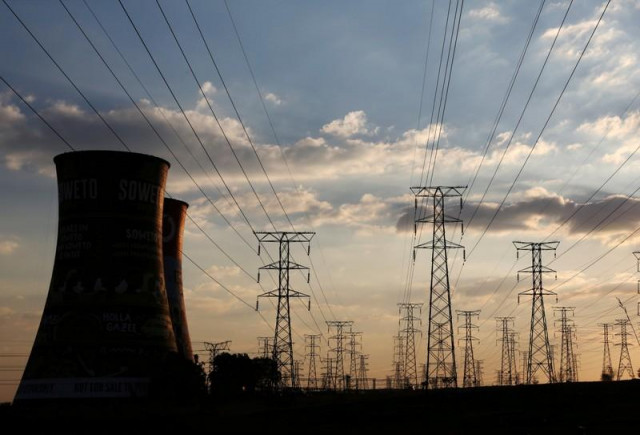Karachi's south district set to go (almost) wireless
Rs4b project launched to replace overhead cables with underground cables

Open telephone and television cables have long troubled Karachiites. Not only do they pose a risk of electrocution, they can also be a nuisance for commuters and mar the city's beauty.
In a bid to rid the metropolis of these troublesome conductors, an undergrounding project has been launched, which will cover Karachi's South district first and then will be expanded to the rest of the city.
The project aims to replace overhead cables with cables buried deep under the ground.
The project
The pilot project launched in the South district has been divided into four phases.
In the first phase, cables will be undergrounded in the red zone. Then, the district's posh areas, including Defence Housing Authority and Clifton, will witness overhead cables being replaced by underground cables in the second phase. Saddar and its adjacent areas will be covered in the third phase and the remaining, more densely populated areas of the district will be covered in the last phase.
According to officials at the Karachi Commissioner's office, the project, costing Rs4 billion, is being jointly initiated by 18 private telecommunication companies, which have been authorised by the Pakistan Telecommunication Authority to execute the project. These companies will also be responsible for repairing any damage caused to road infrastructure while burying the cables.
Confirming these developments, South deputy commissioner (DC) Irshad Ahmed Sodhar said the pilot project was initiated last month and its execution in the district was expected to reach completion by December this year.
Elaborating further, he said that cables would be buried at least two feet deep and the project would only cover main roads, not streets.
The project is planned to cover the entire city later, with the process of laying underground cables across Karachi, as part of this initiative, likely to take two years, the officials at Karachi Commissioner's office told The Express Tribune. In the project, cables will be undergrounded over an expanse of roughly 400 kilometres, including 90km to 100km in South district alone, they said.
Delays
According to an official, the project has been initiated on the Supreme Court's orders.
It had been under discussion for the past three years and remained in limbo for multiple reasons. These included the lack of consensus among stakeholders, such as the Karachi Metropolitan Corporation, district municipal corporation, Cantonment Board Clifton and DHA, on most matters.
Then, in February this year, a memorandum of understanding was signed between the district administration and the private telecommunication companies, but to no avail, as the pandemic-induced lockdown posed another hurdle in the way of execution.
Further delays were caused by recent rains.
"[But] the work [on the project] has been resumed," according to Sodhar. Acknowledging that ensuring coordination between all stakeholders was "a bit challenging," he added that the matter had been resolved.
Great expectations
Sodhar believes that the project "will give a new look to the city," as does an official at Karachi Commissioner's office.
"The city's old areas, including Saddar, Burns Road and nearby localities, will have a new look by the end of the year," the official expressed hope.
This optimism is not lost on citizens either.
"It is a great initiative and the government should have removed these open threats [overhead cables] years ago," Jawad Ahmed, who lives near the Chief Minister House, told The Express Tribune, pointing to open cables on a nearby footpath.
"Underground cables won't create any trouble for commuters and residents either. It is a safe system and will cause no harm, even during rains," explained Sodhar.
According to Abdul Qayoom, who lives near the Sindh Assembly and says he has been witnessing the changing landscape of the area following the launch of beautification initiatives, "open cables have been installed haphazardly and, in fact, mar the beauty of the city's old neighbourhoods."
Published in The Express Tribune, July 23rd, 2020.



















COMMENTS
Comments are moderated and generally will be posted if they are on-topic and not abusive.
For more information, please see our Comments FAQ